Unlocking the Potential of Algebra 1: A Comprehensive Guide for Teachers
Algebra 1 is often considered a turning point for students in their mathematical education. It represents a shift from arithmetic to more abstract mathematical concepts and is the foundation for higher-level math courses. As a teacher, you play a crucial role in helping your students navigate this important subject and reach their full potential.

In this post, we will discuss ways to unlock the potential of Algebra 1 and set your students up for success.
The Absolute Best Book for the Algebra I
Why is algebra so important?
Algebra is considered a fundamental branch of mathematics that is important for a number of reasons:
- Problem-solving skills: Algebra teaches students how to think logically and systematically in order to solve problems. These problem-solving skills are valuable not just in mathematics, but in a variety of other subjects and in everyday life as well.
Problem-solving skills are essential in many aspects of life, and algebra provides a valuable opportunity for students to develop these skills. Algebra teaches students how to approach a problem systematically and logically, breaking it down into smaller parts and using mathematical concepts and operations to find a solution.
For example, when solving an algebraic equation, students must isolate the variable on one side of the equation and simplify the expression on the other side. This process requires critical thinking, logical reasoning, and attention to detail. By practicing these skills in algebra, students can become better problem-solvers in other areas of their lives.
In addition, the process of solving algebraic problems can help students develop important qualities such as persistence, perseverance, and a growth mindset. Algebraic problems can be challenging, and students may need to try multiple methods or make mistakes before they find the correct solution. This process teaches students to persevere and continue working on a problem even when it seems difficult. - Preparation for higher-level math: Algebra is a prerequisite for many higher-level math courses such as geometry, trigonometry, and calculus. Understanding algebra is essential for success in these subjects.
- Career opportunities: Algebra is a required subject for many college majors, particularly in science, technology, engineering, and mathematics (STEM) fields. A strong understanding of algebra can open up a wide range of career opportunities.
- Real-world applications: Algebra has many real-world applications, such as in finance, physics, engineering, and data analysis. Understanding algebraic concepts and equations helps people make informed decisions and analyze data effectively.
- Improved critical thinking skills: Algebra requires students to think logically, creatively, and critically. By engaging in algebraic problems, students can develop their ability to analyze complex systems, understand patterns, and make connections between mathematical concepts and real-world situations.
When should kids take Algebra I?
The ideal time for a student to take Algebra I depends on a variety of factors, including their individual strengths, interests, and learning style, as well as the curriculum and expectations of their school.
In general, students typically take Algebra I in middle or high school, between the ages of 11 and 14. Most schools offer Algebra 1 for 9th-grade students.
There are arguments for starting Algebra I early, as early as the 7th or 8th grade. Starting early can allow students to develop a strong foundation in the subject, build their confidence, and prepare them for more advanced math courses. It can also help students who are academically advanced to stay challenged and motivated.
On the other hand, some educators and parents believe that it is better to wait until later, perhaps 9th or 10th grade, to allow students to mature and develop better study habits. This can also help ensure that students have a solid understanding of basic math concepts before moving on to more complex topics.
Ultimately, the best time for a student to take Algebra I will depend on their individual needs, interests, and abilities. It is important for parents and educators to work together to assess the student’s readiness and make an informed decision about the best time for them to begin studying Algebra I.
Strategies for Algebra Teachers to Ensure Student Achievements
Here are some strategies that algebra teachers can use to help their students succeed:
- Make math relevant: Connect algebraic concepts and equations to real-world situations. This can help students see the relevance and importance of what they are learning, making the subject more engaging and memorable.
- Use a variety of teaching methods: Different students learn in different ways, so it’s important to use a variety of teaching methods. This might include lectures, hands-on activities, group work, and technology-based tools.
- Start with clear and concise explanations: One of the biggest challenges students face in Algebra 1 is understanding abstract concepts. To help overcome this, it is important to provide clear and concise explanations that are easy for students to understand. Use visual aids and real-world examples to make the material more accessible, and encourage students to ask questions if they need clarification.
- Encourage students to think critically: Another way to unlock the potential of Algebra 1 is to encourage students to think critically about the material. Ask open-ended questions that encourage students to think beyond the textbook and apply their knowledge to real-world problems. Encourage students to make connections between concepts, and give them opportunities to explore and discover the material on their own.
- Make learning fun and engaging: Algebra 1 can be a dry subject for some students, but you can help make it more engaging by incorporating hands-on activities, games, and real-world applications into your lessons. This will not only make the subject more enjoyable for students, but it will also help them retain the information better.
- Provide ample opportunities for practice: Practice is key to unlocking the potential of Algebra 1. Make sure your students have ample opportunities to practice the concepts they are learning. This can be done through homework assignments, classwork, and assessments. Encourage students to seek help if they are struggling, and provide extra support if needed.
- Encourage active learning: Encourage students to be active participants in the learning process. This might involve asking questions, working on problems, or explaining their thought process. Active learning can help students retain information better and develop their problem-solving skills.
- Provide frequent feedback: Provide regular feedback to students on their progress and performance. This can help students understand what they are doing well and where they need to improve, as well as boost their confidence and motivation.
- Offer extra support: Offer extra support to students who are struggling. This might involve extra tutoring, homework help, or alternative teaching methods. By providing extra support, you can help students overcome any challenges they may be facing and ensure they stay on track.
- Celebrate success: Celebrate students’ successes and accomplishments, both big and small. This can help build a positive and supportive learning environment and encourage students to continue working hard.
By implementing these strategies, algebra teachers can create a supportive and effective learning environment that helps their students succeed.
The Best Books to Ace the Algebra I Test
Related to This Article
More math articles
- ParaPro Math FREE Sample Practice Questions
- Best Calculators for Electrical Engineering Students In 2024
- How to Prepare for the THEA Math Test?
- How to Scale a Function Horizontally?
- Top 10 PSAT/NMSQT Math Practice Questions
- SHSAT Math – Test Day Tips
- Geometry Puzzle – Challenge 59
- 5th Grade Georgia Milestones Assessment System Math Worksheets: FREE & Printable
- PSAT Math Practice Test Questions
- ALEKS Math Placement Review and FAQs
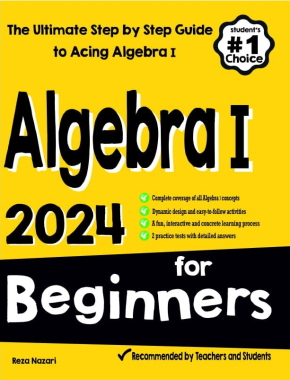
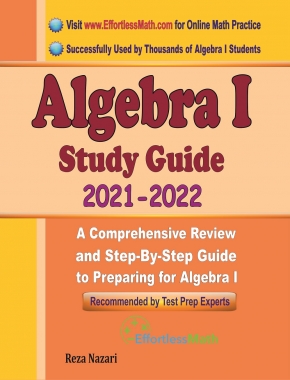
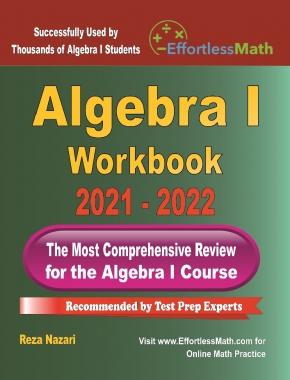
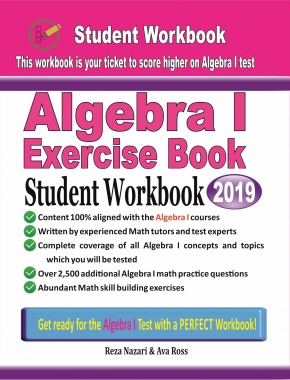
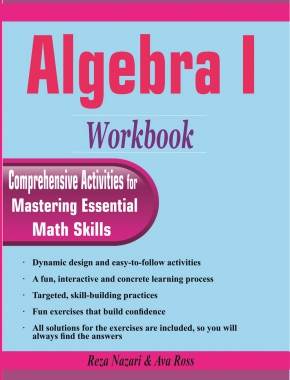

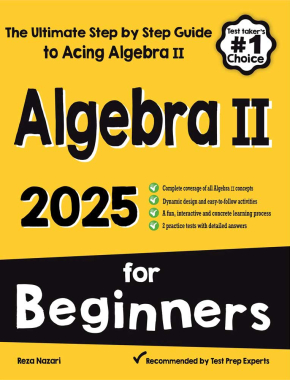
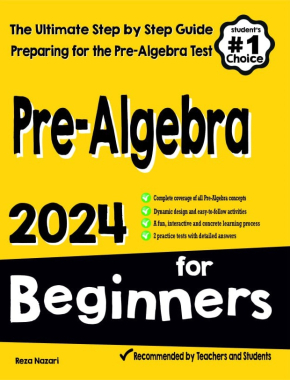
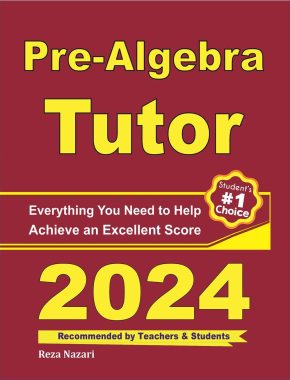
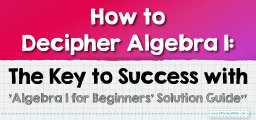



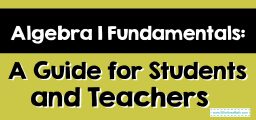
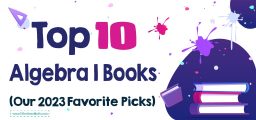

What people say about "Unlocking the Potential of Algebra 1: A Comprehensive Guide for Teachers - Effortless Math: We Help Students Learn to LOVE Mathematics"?
No one replied yet.